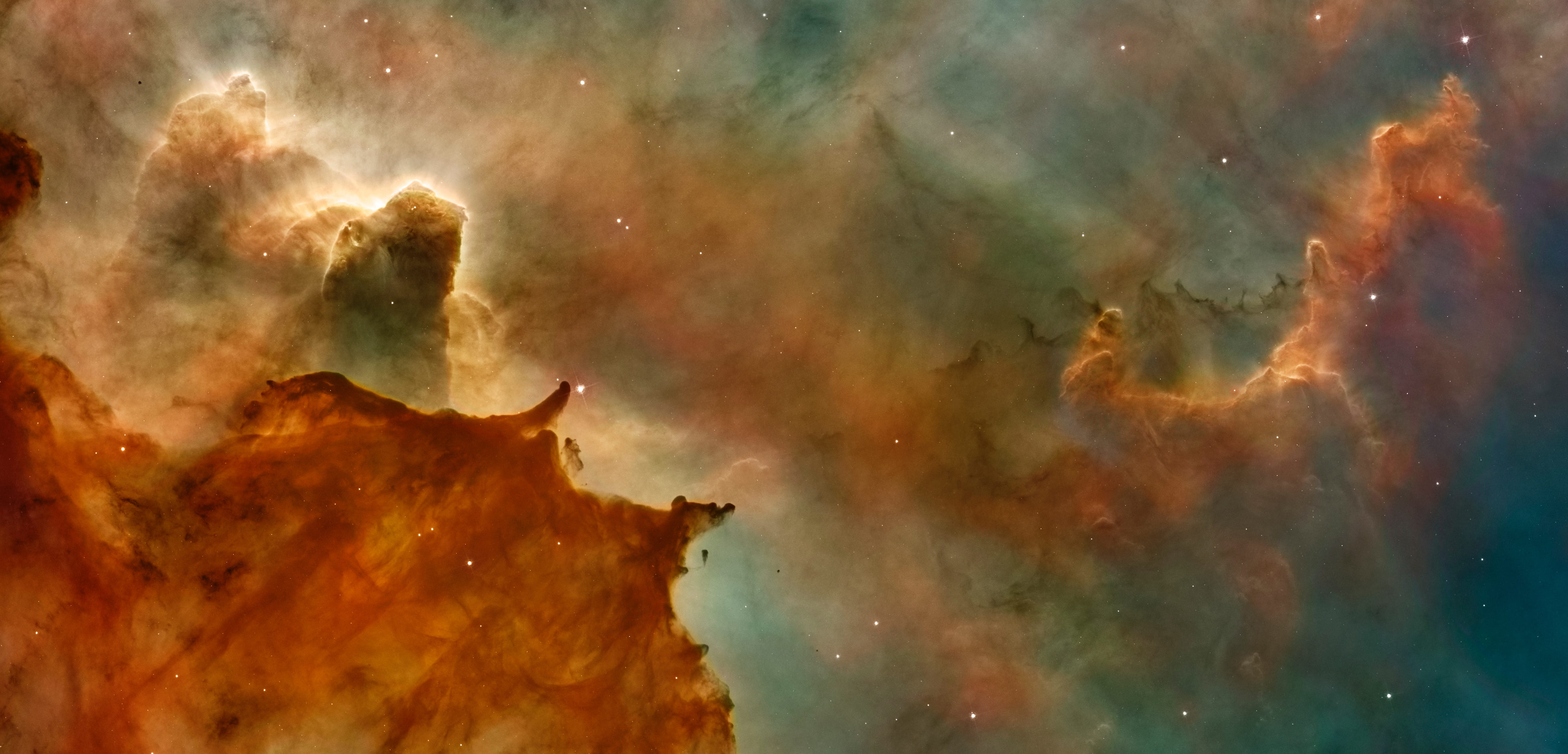Creation as God’s Lavish Love
Author: Dr. Craig KeenerIn its ordered, schematic way, Genesis 1 sketches God’s power, his creativity, his brilliant design, and his loving and careful delight in what he has created.
His power is easily evident. God simply speaks, and the variety of things spring into being, generally from less to more complex. Moreover, God then gives his creation a degree of independence to act and propagate on its own rather than waiting for him to create each new creature.
God Ordered Creation for Our Benefit
Most people in the ancient Middle East and Mediterranean worlds believed in a sort of primeval chaos. Here, however, God establishes the world’s orderly design, commanding each form of life to reproduce according to its kind. God organized creation so that birds bring forth birds and cattle bring forth cattle; he provided genetically for continuity in forms of life. (Genesis was not written to address modern scientific interests; the point here is God’s order from one generation to the next, not resistance to change over aeons of time. Both continuity and change may belong to the potencies God invested in life forms, although God certainly has the power to direct the processes.)
“We keep messing up, yet God keeps pursuing us, relentlessly seeking those who will embrace his way.”
The passage emphasizes God’s great benevolence. God supplied waters for fish to live in, and air and land for other creatures to dwell in. Genesis further shows that the very celestial lights worshiped by pagans are simply part of God’s gift to regulate life on earth (Genesis 1:14-18). All these things were good, God recognized, but he wasn’t finished. The pinnacle of his good creation was people. As sun and moon governed night, God formed humanity to govern earth for him. In many of the previous cases God simply commanded earth or water to bring forth life forms; in this instance, by contrast, he himself lovingly fashioned us directly.
Made in His Image
God not only formed us in a special way, but he fashioned us in his own image, to be like him. Scholars sometimes point out that kings established images of themselves widely as symbols of their rule. While this analogy may play a role here, Genesis itself reveals an even deeper message. What does it mean to be in someone’s likeness and image? In this section a Genesis, a father has a son in his likeness and image (Genesis 5:3). When God made us in his image, he was saying that he desired us to be, and loved us as, his own sons and daughters. Even after the fall, God valued humans as those made in his image (Genesis 9:6). Nothing that humans could make, imitating anything in creation, could fill this role (Deuteronomy 4:16), but God granted us to be in his image. God’s act of creating us was an act of love, an invitation to intimate fellowship with himself.
God’s Generosity
As benevolently as he had made everything before people, God now finished his creative work with lavish generosity. He wanted the creatures most like their creator to govern the rest of his world for him, stewards with access to everything. God gave them and other animals access to all the plants for their food. With each of his previous creations, God had concluded that it was good; with the creation of people, however, he declared that he had made the world very good. When we read Genesis 1, we can celebrate with the great artist and his beautiful, interdependent design. Every week when we rest from our work we are invited to remember God’s gift in creation and how he rested afterward (Exodus 31:17).
“God lovingly designed the world in an exquisite, orderly way.”
Genesis 1 reveals how lavishly God blessed us. Like the different but theologically complementary perspective in Genesis 2, this account (Genesis 1:1—2:4, from “the beginning to the “completion” in Genesis 2:1) helps set the stage for the tragic vision of Genesis 3: our failure as humans to be recognize his benevolence and be grateful. We squandered our gracious God’s gifts and ruined them, ruining ourselves in the process. Even so, this kind God showed his care for humanity (Genesis 3:21) and continued to deal with us (Genesis 4:4, 15). Thus begins the saga of redemption, the story that carries throughout the Bible. We people keep messing up, yet God keeps pursuing us, relentlessly seeking those who will embrace his way.
Genesis Contrasted with Pagan Stories
The days of creation are a schematic device to remind us that God took his time to lovingly craft a world teeming with life that could run largely on its own, with just some human supervision to tend it for its good. This passage explains the abundant provision God has given us in this world, his masterpiece. Some pagan stories of creation at the time explained creation as the result of unintentional, violent interactions among deities, but Genesis is clear that one God lovingly designed the world in an exquisite, orderly way. Genesis 1 introduces this God of love, who furnished such an orderly world and crowned us the pinnacle of his creation. Humans, who ruined paradise, are still invited as heirs in the Lord’s new creation.
Genesis and Science
That’s the theological climax of this post. I turn briefly anticlimactically to a different point: those who turn Genesis 1 into a science debate about the age of creation miss the real theological issue here. (My younger brother Chris, a scientist and committed Christian, often rightly laments how many good scientists get turned off to the Bible by some Christians’ prosaic articulation of it.) The passage itself uses yom, the Hebrew word usually translated “day,” three different ways (e.g., Genesis 1:5, 8, 18; 2:4), yet some want to force the term to bear the weight of literal twenty-four hour days.
“When we read Genesis 1, we can celebrate with the great artist and his beautiful, interdependent design.”
Unlike my brother, I lack the qualifications that should make anyone care what I think about the scientific questions. I can, however, speak plainly to the biblical questions, and there I find that much of today’s approach to Genesis 1 misunderstands the genre that would’ve seemed obvious to the most ancient hearers. It substitutes for it instead questions that would not have concerned or even been intelligible to the first audience. (For my thoughts on Genesis 1—3 and what it is not meant to tell us about modern scientific questions, see the latter part of http://www.huffingtonpost.com/craig-s-keener/is-young-earth-creationism-biblical_b_1578004.html—if you aren’t afraid to engage a perspective probably very different from what you’ve heard before on a popular level!)
Conclusion
Genesis is not interested in our curiosity about the age of the earth; if we want to discover that, God has provided other means for that. Its interest is more immediately practical for faith: its interest is in inspiring us to awe of the awesome, ingenious, artistic creator who designed creation and history. Humanity was once ungrateful and squandered his gifts. Now that we have experienced both good and evil, we do not start in innocence but are invited to make an informed choice to honor him. Let us praise God for his lavish love and magnificent creativity, and fill the role as his agents that he has graciously granted us.

